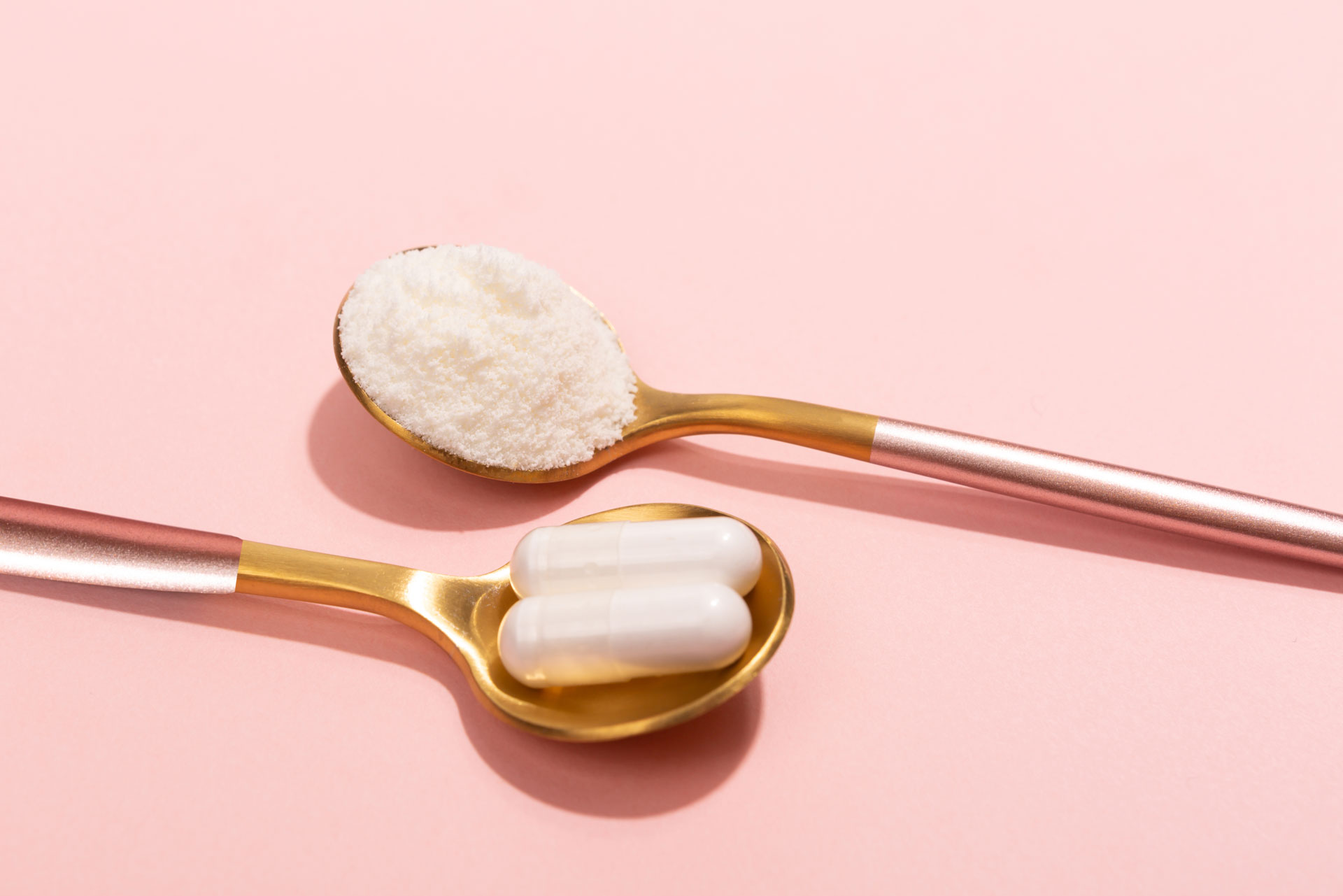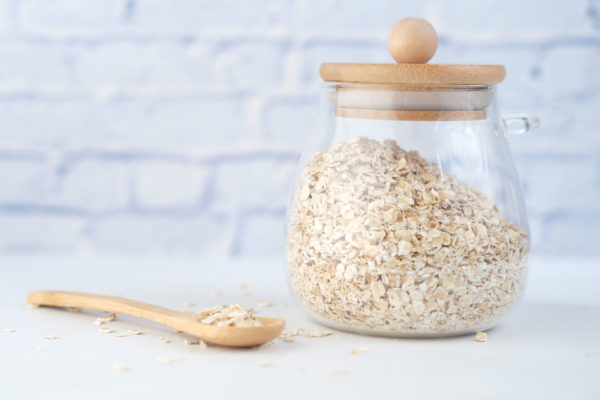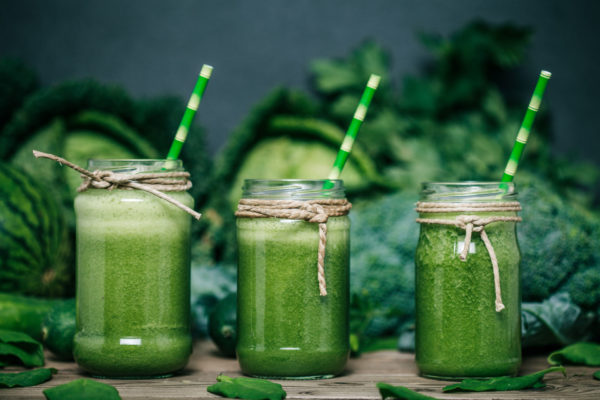Will Magnesium Help You Sleep Better?
By
2 weeks ago
A nutritionist's guide to the buzziest mineral of 2025

Magnesium is having a moment. TikTok is awash with content surrounding the mineral, with the hashtag #magnesium having amassed millions of views on the platform since the start of the year. Devotees are raving about the health perks, claiming it helps with everything from improving sleep (remember the sleepy girl mocktail?) to reducing anxiety. But are the claims backed by science? And do we need to be taking supplements? We asked the experts.
Magnesium: Health Benefits & Foods To Eat
Why Is Magnesium Important?
Magnesium is an essential macronutrient which plays a key role in many of the body’s processes, including bone health and mood. It’s the fourth most abundant mineral in the body, however our bodies don’t produce it, so we need to obtain it through food or supplementation.
‘Magnesium is a vital mineral that our bodies use for a multitude of functions,’ says Dr. Vijay Murthy, functional medicine doctor and co-founder of Murthy Health. ‘It supports energy production, helps regulate blood pressure and blood sugar levels, aids in bone health and ensures proper muscle and nerve function. Additionally, magnesium plays a crucial role in mood regulation and digestive health. Without enough magnesium, our bodies can’t perform these essential tasks efficiently.’

GettyImages
Benefits include:
Bone health
‘Approximately 60 percent of the body’s magnesium is stored in the bones, where it helps in the structural development of bone and is essential for the absorption and metabolism of calcium,’ explains Murthy. ‘For instance, adequate magnesium intake can help prevent osteoporosis and promote strong, healthy bones, especially in older adults.’
Blood sugar metabolism
Blood sugar is another big TikTok trend right now, but it’s a crucial factor for health. Magnesium helps manage our levels by influencing insulin secretion and function, notes Murthy – hence why people with type 2 diabetes are often encouraged to increase their intake.
Mood regulation
The wonder mineral may help boost your mental health too. ‘Magnesium is involved in the production of neurotransmitters that regulate mood, such as serotonin,’ says Murthy. ‘For example, research suggests that magnesium supplementation can help reduce symptoms of depression and anxiety.’ One study from 2006 reported magnesium glycinate an effective treatment for depression, and more recently researchers found magnesium supplementation could help with reducing anxiety.
Energy production
Feeling low in energy? Magnesium could help with that too. ‘Magnesium is a key player in the energy production process within our cells,’ Murthy notes. ‘It is involved in the conversion of food into energy by activating adenosine triphosphate (ATP), which is the main energy carrier in the body. For example, during physical activities like running or lifting weights, magnesium helps ensure that your muscles have the energy they need to perform.’
It can also help with:
- Muscle and nerve function
- Blood pressure regulation
- Digestive health
Is Magnesium Good For Sleep?
Magnesium is a master of all trades: as well as boosting energy, it can also help you wind down at night. As nutritionist Kim Pearson explains, the mineral’s calming effects on the nervous system can help people relax. ‘This his essential mineral has the ability to impact the calming neurotransmitter GABA, helping to reduce brain activity in preparation for sleep,’ she says. ‘Deficiencies in magnesium have been associated with insomnia and disrupted sleep patterns.’ A handful of scientific studies have backed this up, with one showing magnesium supplementation resulted in longer sleep times and better sleep efficiency.
How Much Magnesium Do We Need Each Day?
So it’s clearly a crucial mineral, but are you getting enough? The recommended amount varies based on age and gender.
Murthy suggests:
- Women aged 19-30 need 310 milligrams (mg) per day
- Women aged 31 and older need 320 mg per day
- Pregnant women aged 19-30 should aim for 350 mg per day
- Pregnant women aged 31-50 should get 360 mg per day
- Men aged 19-30 need 400 mg per day
- Men aged 31 and older need 420 mg per day
What Are Some Signs Of A Deficiency?
‘Magnesium deficiency can manifest in several ways,’ says Murthy. ‘Common signs include muscle cramps or spasms, fatigue, weakness, loss of appetite, nausea and vomiting. Severe deficiency can lead to more serious symptoms like abnormal heart rhythms and personality changes.’ Certain groups of people are more likely to have a deficiency, including individuals with gastrointestinal diseases, type 2 diabetes or alcohol dependence, as well as older adults and athletes.
If you’re noticing any of these signs, it’s worth consulting a healthcare provider, who may suggest you take supplements. ‘You can maximise magnesium rich foods and also supplement via pills, powders and even topically through the skin,’ suggests Hannah Alderson, registered nutritionist and hormone specialist. ‘It comes in a few forms when it comes to supplements, and each form will serve its own purpose – for example, magnesium citrate is great for digestive regularity and magnesium glycinate is wonderful to support anxiety, and is particularly nice to take before bed.’

Unsplash
Which Foods Are High In Magnesium?
There are lots of ways to up your magnesium intake through your diet. Leafy green vegetables are a good source as they are high in magnesium-rich chlorophyll, as are unrefined grains, nuts and seeds. This analysis found high levels of magnesium in Brazil nuts, oat bran, cashew, mackerel, spinach and Swiss chard, while another study highlighted chia seeds and pumpkin seeds as magnesium-rich foods.
Murthy recommends these sources:
- Pumpkin seed kernels: 162mg per ¼ cup
- Amaranth grain (cooked): 160mg per cup
- Brazil nuts: 107mg per ounce (about 6 nuts)
- Almonds: 80mg per ounce (about 23 nuts)
- Spinach (boiled): 78mg per ½ cup
- Swiss chard (boiled): 75mg per ½ cup
- Cashews: 74mg per ounce (about 16 nuts)
- Peanuts: 63mg per ¼ cup
- Black beans (cooked): 60mg per ½ cup
- Edamame (cooked): 50mg per ½ cup
- Avocado (cubed): 44mg per cup
- Brown rice (cooked): 43mg per ½ cup






